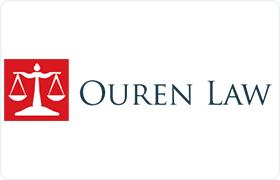Parker RICO Act Lawyer, Washington
Sponsored Law Firm
-
 x
x

Click For More Info:
-
Ouren Law
4101 South Union Street Kennewick, WA 99337» view mapCriminal Defense Dedicated. Straightforward. Tough.
With more than a decade of experience, Attorney Ouren has helped many clients achieve successful results in their family law and criminal law matters.
800-971-6601
Not enough matches for Parker RICO Act lawyer.
Below are all Parker Criminal lawyers.
Brooke Rosborough Barnes
Traffic, Family Law, Child Custody, Criminal
Status: In Good Standing Licensed: 12 Years
Louis Daniel Fessler
State Government, Municipal, Criminal, Legal Malpractice
Status: In Good Standing Licensed: 49 Years
Sean Mckenna Worley
Motor Vehicle, Medical Products & Devices, Criminal, Business
Status: In Good Standing Licensed: 39 Years
Troy Joseph Lee
Traffic, Litigation, Juvenile Law, Criminal
Status: In Good Standing Licensed: 24 Years
George Paul Trejo
Criminal, Civil Rights, Personal Injury, Malpractice
Status: In Good Standing Licensed: 34 Years
Kip Bates Kendrick
Wills & Probate, Estate, White Collar Crime, Criminal
Status: In Good Standing Licensed: 50 Years
 Kimberly Ouren Kennewick, WA
Kimberly Ouren Kennewick, WA Practice AreasExpertise
Practice AreasExpertise
